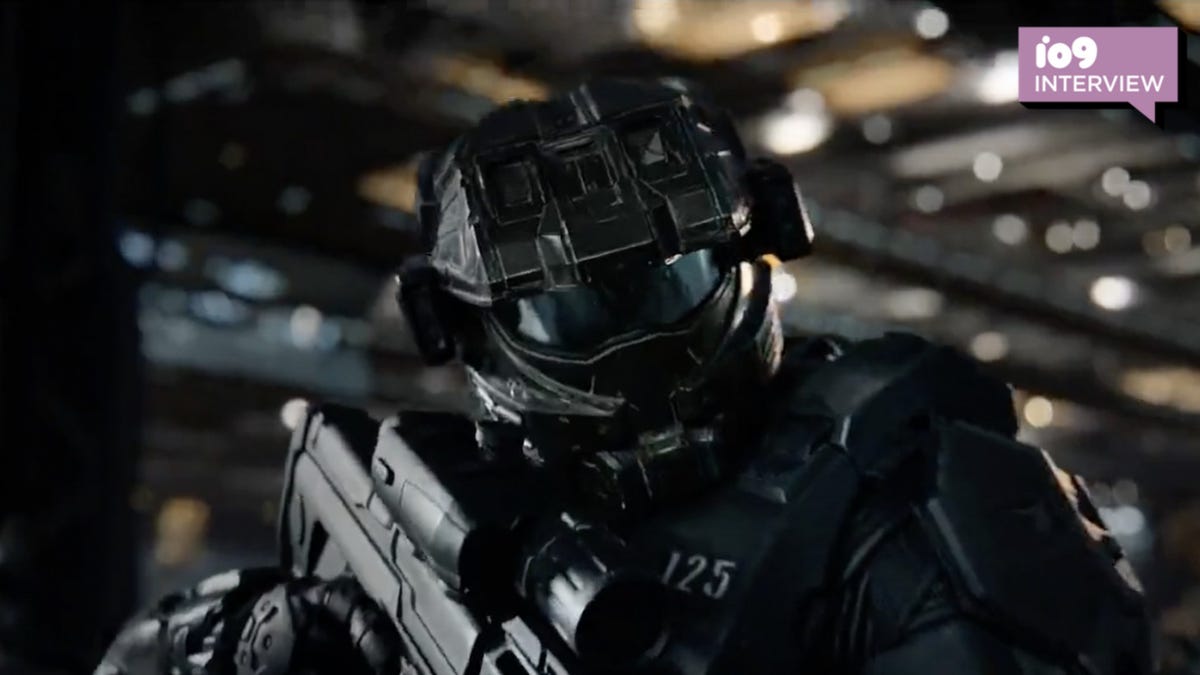How Halo's Past with TV and Film Helped Shape the New Series - 5 minutes read

Though Paramount’s upcoming Halo TV series is just one of many video game shows out in the world right now, it is somewhat unique in how the Xbox franchise’s relationship with television has evolved over time. Gamers can almost certainly recall the expansive live action marketing for Halo 3, ODST, and Reach leading up to their respective original releases during the Xbox 360's lifecycle. The live-action promos for those respective games don’t just hold up extremely well, they were the ideal for what anything Halo could be in live action.
Implicitly or not, those commercials have helped define what Halo is, as have the franchise’s other dabbles with TV and film. Whether it’s the two live-action webseries Forward Unto Dawn and Nightfall, or the 2010 anime anthology Halo Legends, they’ve all helped set a tone or standard in the eyes of fans. With some luck, this new show will hopefully stand proudly beside those earlier experiences, while also offering something different for fans to respect. Early reviews indicate it doesn’t succeed right away, but it’s already got a second season and plenty of time to win folks over.
When asked by io9 about the franchise’s history with television, executive producer and 343 Industries’ transmedia head Kiki Wolfkill found that those previous attempts gave 343 plenty of learning material for Halo the series. She credited both Forward and Nightfall for helping to expand the scope of Halo’s universe beyond supersoldiers fighting aliens, and Legends for showing the importance of bringing outside creators into a franchise to “express it differently.” Nightfall, the origin story for Halo 5’s co-protagonist Jameson Locke starring Luke Cage’s Mike Colter, was also thanked for teaching 343 about “overextending,” particularly in regards to budget.
Another guiding hand for the series? Halo 4, 343's first non-remaster Halo game. The 2012 release came packaged with a co-op campaign dubbed “Spartan Ops” that focused on a group of next generation Spartans fighting in a war involving a new splinter faction of the alien Covenant, the primary antagonist of the first four Halo games and now the TV series, as well as that game’s primary enemy, the Prometheans. With a weekly release structure akin to a TV show, it was in a way a precursor to the seasonal model that so many live service games—see Destiny, Apex Legends, or even 343's latest, Halo Infinite—now use to convey a narrative story in the framework of a multiplayer game. To Wolfkill, the co-op mode helped 343 figure out “the episodic nature of television, and taught us a lot about character dynamics.” Spartan Ops received a mixed reception overall and ended after its first season, though its story would continue via a series of Dark Horse Comics that ran from 2013 to 2015, a month after Halo 5's launch. Despite its short existence, Wolfkill believed that the mode “very much informed our intent with this show.”
According to her and Halo season one showrunner Steve Kane (who is departing the series ahead of season two), the ultimate intent was to tell the story of Pablo Schreiber’s Master Chief in a way that was exciting for fans while also bringing in new people who may know nothing about the sci-fi franchise. Enter: the Silver Timeline, a canon exclusive to the show where events and characters from the games are mostly similar. Wolfkill stressed that the creation of a new canon wasn’t made lightly, and that every decision born from that choice was “rooted in canon.” From new characters or different character beats to shifting events in the timeline, the question was always: “How do we make sure it follows Halo?”
Kane added that it was a big priority of sticking to Halo’s “core values” during the show’s development. But at the same time, he admitted that a new timeline allowed for some freedom the original canon didn’t entirely allow, and there was an ability to dig into “small crevices” and flesh out some elements the games hadn’t dug into, or were just mentioned offhandedly. “We got to expand on the canon,” explained Kane, “and give people who know it well that extra insight. And then, we were also able to invent new things that still adhered to the core values of the canon, but also expand it into new areas.”
More than anything, it was important that the show capture both the franchise’s universal themes of hope and heroism, and also the sense of sci-fi wonder that Halo has managed to consistently provide. As much as Halo has been about “epic sci-fi worlds and these giant stakes,” as Wolfkill put it, the franchise has also endured because of its ability to tell human stories within its large, cosmic world. “For us, that core of what Halo can be across mediums is what was critical for us to embody in the show.”
Halo premieres tomorrow on Paramount+. Look for our review soon.
Wondering where our RSS feed went? You can pick the new up one here.
Source: Gizmodo.com
Powered by NewsAPI.org